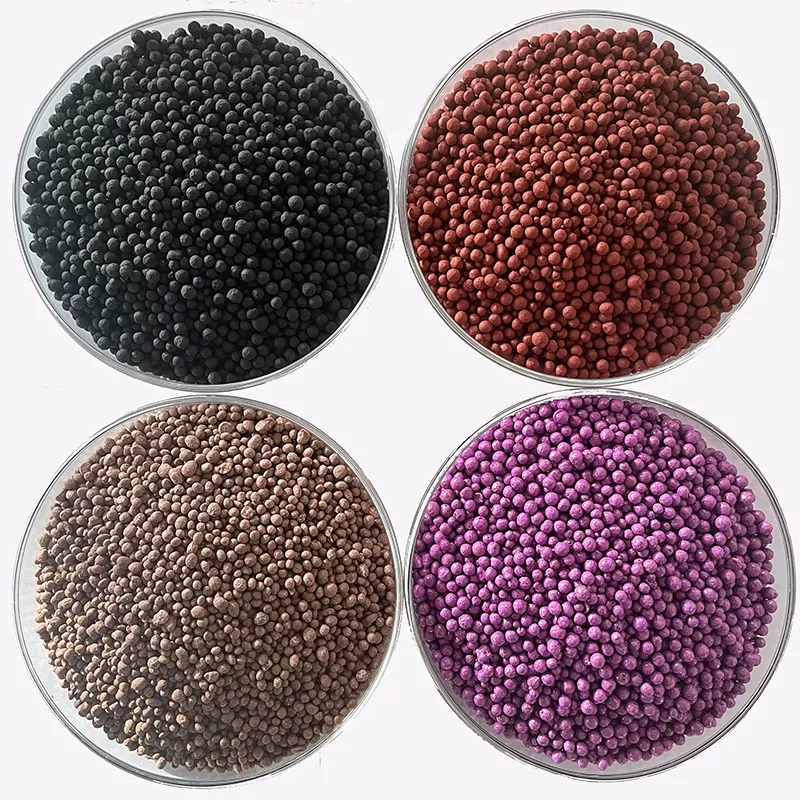
Nov . 09, 2024 09:50 Back to list
Optimal Potash Levels for Healthy Tomato Plant Growth and Fruit Production
The Importance of Potash for Tomato Plants
Tomatoes are one of the most popular and widely grown vegetables in home gardens and commercial farms alike. To achieve healthy growth and bountiful yields, it is crucial to provide tomato plants with the right nutrients. Among these, potassium—commonly referred to as potash—plays a vital role in the overall health and productivity of tomato plants.
Understanding Potash
Potash, a term for potassium-containing compounds and fertilizers, is essential for plant health. It is represented by the chemical symbol K, which stands for potassium. In the context of gardening and agriculture, potash typically refers to the soluble forms of potassium that plants can easily absorb and utilize. Potassium is one of the three primary macronutrients, alongside nitrogen and phosphorus, that plants require in larger quantities for optimal growth.
The Role of Potash in Tomato Plant Development
Potassium is crucial for numerous physiological processes in tomato plants. Here are several key functions that highlight its importance
1. Water Regulation Potassium plays a significant role in regulating water movement within the plant. It helps to open and close the stomata, which are small openings on the leaves that control gas exchange and transpiration. This function is particularly important for tomatoes, as it helps the plant manage water stress, especially during hot weather.
2. Photosynthesis Enhancement Potassium is vital for photosynthesis, the process by which plants convert sunlight into energy. It activates various enzymes involved in this process and helps in the synthesis of carbohydrates. For tomato plants, improved photosynthesis can lead to better growth and fruit development.
3. Fruit Quality The presence of adequate potassium levels in tomato plants directly influences the quality, size, and taste of the fruit. Potassium enhances the sugar content and overall flavor of tomatoes while also improving their color and firmness. This makes potassium especially critical for farmers and gardeners who aim to produce high-quality tomatoes for sale or consumption.
potash for tomato plants

4. Disease Resistance Stronger plants tend to be more resilient against pests and diseases. Potassium helps to strengthen the plant's cell walls, making it less susceptible to infection. A sufficient supply of potash not only supports robust growth but can also aid in reducing the risk of common tomato diseases, such as blight.
5. Nutrient Absorption Potassium plays an essential role in the transport of other nutrients within the plant. It helps in the absorption of water and nutrients from the soil, ensuring that the plant can effectively utilize other essential elements, such as nitrogen and phosphorus.
How to Apply Potash for Tomato Plants
To ensure that tomato plants receive adequate potassium, gardeners often use fertilizers specifically formulated with potash. When selecting a fertilizer, look for products with a higher middle number in the N-P-K (Nitrogen-Phosphorus-Potassium) ratio, indicating increased potassium content. For example, a ratio of 5-10-20 signifies a high level of potassium.
1. Soil Testing Before applying any fertilizer, it is prudent to conduct a soil test. This will provide insights into the current nutrient levels and help determine whether additional potassium is necessary.
2. Fertilization Timing It is advisable to apply potash at planting time and during the growing season, especially as the plants begin to set fruit. This timing maximizes the benefits of potassium when the plants need it most.
3. Organic Options For those preferring organic gardening methods, there are natural sources of potassium, such as wood ashes, which can be spread lightly on the soil. Additionally, compost made from banana peels can be an excellent organic source of potassium.
Conclusion
In conclusion, potash is an essential nutrient for tomato plants, influencing everything from their growth and water management to fruit quality and disease resistance. By understanding the role of potassium and effectively managing its application, gardeners can ensure their tomato plants thrive, leading to a fruitful harvest. Whether you are a seasoned gardener or a novice, paying attention to the nutrient needs of your plants, especially potash, can lead to delicious, homegrown tomatoes that are sure to impress.
-
Premium 10 10 10 Fertilizer Organic for Balanced Plant Growth
NewsJul.29,2025
-
Premium 10 10 10 Fertilizer Organic for Balanced Plant Growth
NewsJul.29,2025
-
50 Pound Bags of 13-13-13 Fertilizer for All Plants – Bulk & Organic Options
NewsJul.28,2025
-
High-Efficiency 15-30-15 Granular Fertilizer for Healthy Crops
NewsJul.28,2025
-
15-30-15 Granular Fertilizer for Optimal Crop & Lawn Growth
NewsJul.27,2025
-
Premium 10 10 10 Water Soluble Fertilizer for Fast Plant Growth
NewsJul.26,2025
